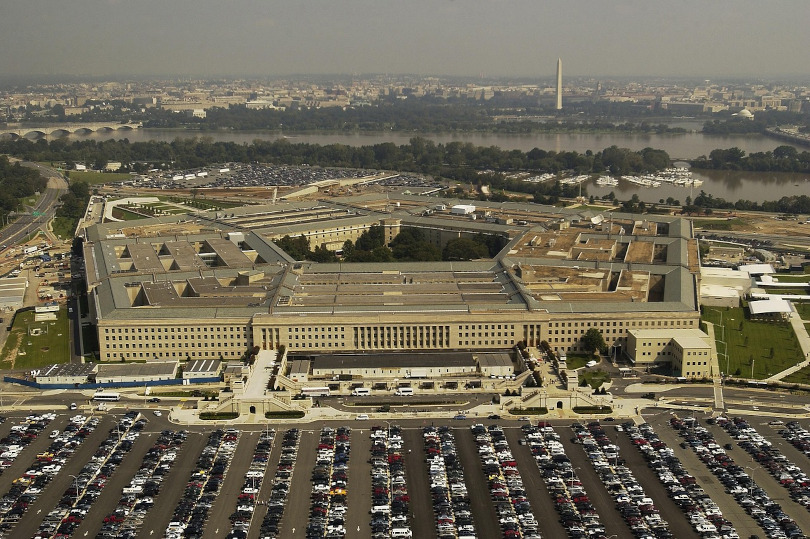On August 18th, organizers from the FreeDC project, an organization that has been dedicated to protecting D.C. Home Rule since President Trump took office in January, held a rally and press conference at the corner of 14th and the historic U Street that I attended.
At this rally, I saw people holding signs saying, “we do not consent,” “Free D.C.,” “D.C. Police under D.C. control,” and other messages of solidarity, after Trump has attempted to federalize the city over the past week.
This press conference came after Trump called for other states, such as West Virginia, South Carolina, and Ohio, to send in their National Guard troops to further increase police and military presence throughout the district for the next 45 days.
Organizers are frustrated; another press conference was held just last week, when Trump first announced his order to overturn Home Rule. But people remain determined.
In a call for state representatives to resist these orders from Donald Trump, Executive Director and co-founder of the Free DC project, Keya Chaterjee, said “You are sworn to protect the United States from all enemies, foreign and domestic. You have a duty to uphold that oath, and stop what is happening in D.C. in this moment.”
NeeNee Taylor, one of the founders of Harriet’s Wildest Dreams–an organization for Black-led community defense–focused on the recent impact to the safety of D.C.’s Black and Brown residents. “He [Trump] has sent in armed troops. We already have enough law enforcement. And let’s be clear, D.C. has over 37 police agencies. What do we need more for? They’re coming into our communities. They’re coming for the Uber drivers just trying to make a living.”
Taylor says the last thing this deployment is about is safety. “It’s for control. Black and Brown people; we are not safe. We are in a state of emergency right now,” Taylor said.
Unhoused people in D.C. have also been under unique threat.
Jesse Rabinowitz, campaign and communications director for the National Homelessness Law Center, said that he viewed what is happening in D.C. as “an attack on our homeless neighbors.” At the rally, he discussed the precedent that has made this kind of affront possible. “Laws that make it illegal to be poor or Black are as old as America, but they are in the middle of a rebirth. Who here has heard of the Cisero institute?” Not many in the crowd raised a hand.
“The Cisero institute is a so-called think tank that pushes cookie cutter laws across the country that make it a crime to sleep outside. They gut funding for housing, they make it easier to throw homeless people into government run detention camps, and they increase the policing of homeless folks, who in D.C. are 85% Black,” Rabinowitz explained.
Ward 1 of D.C., which houses the historically Black U Street corridor, is situated in a unique position. Rabinowitz, a resident of Ward 1, expressed concern for people experiencing homelessness in Ward 1, as well as immigrant communities in the ward. Especially after federal agents allegedly tore down a sign that protested deportations in Mount Pleasant Plaza, a neighborhood of Ward 1.
“That’s ridiculous. Why are they wasting money on that? We have enough money to make sure that everyone has the housing that they need, but we’re wasting it on PR stunts,” Rabinowitz said.
Kelsye Adams, who is involved with U Street Main Street–an organization that provides assistance to local businesses and organizations in the U Street corridor–and the U Street Neighborhood association, has seen the effects firsthand. Communities are being divided. The normally bustling retail and business district of Columbia Heights has been targeted, and fears have been stoked. “We’ve seen vendors moved away when you talk about Columbia Heights,” Adams said.
But the growth of community has been instrumental in the ward. “We’ve seen our residents, actual residents and accrual neighbors of the U Street neighborhood come outside, create checkpoints, to help folks who are not even members of our neighborhood.
And Adams doesn’t want the solidarity to end any time soon. “U Street is one of the biggest mobilized communities. What I want Ward 1 to continue doing is being a beacon of hope for the rest of the city,” Adams said.
As the saying goes, we keep us safe. There are resources to ensure this.
Taylor, from Harriet’s Wildest Dreams, encourages D.C. residents to join the We Go Together project. A site that ensures the D.C. community, especially those at heightened risk of profiling, move in a buddy system. Additionally, you can text or call (202)335-1183 to report I.C.E. to Migrant Solidarity Mutual Aid.
Featured image courtesy of Pixabay.


